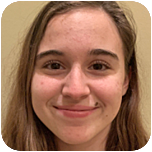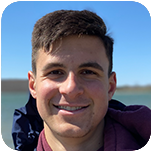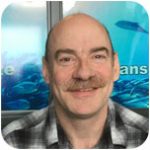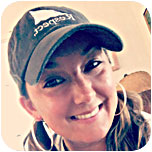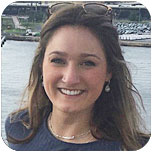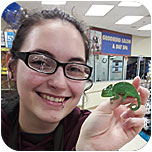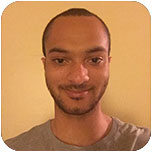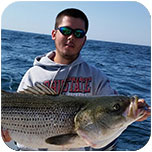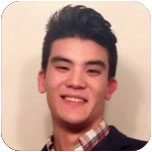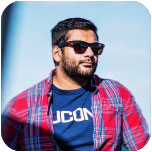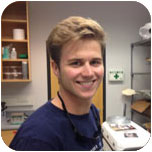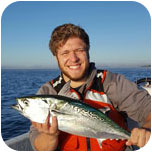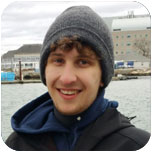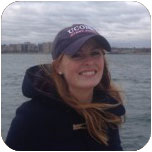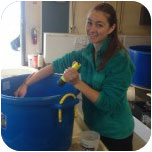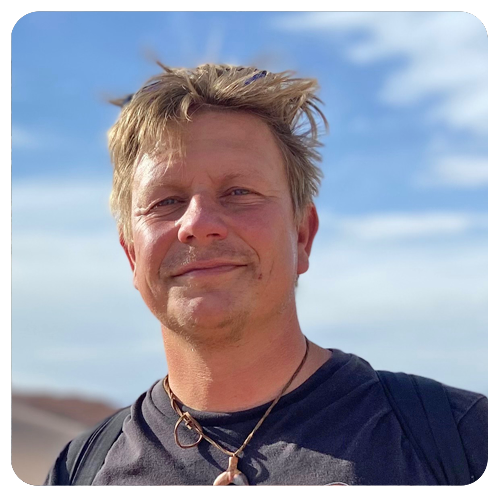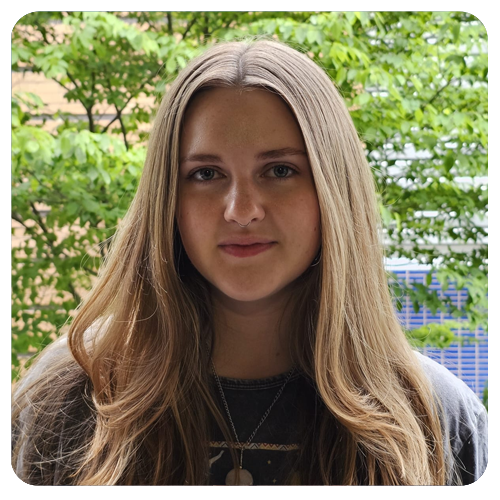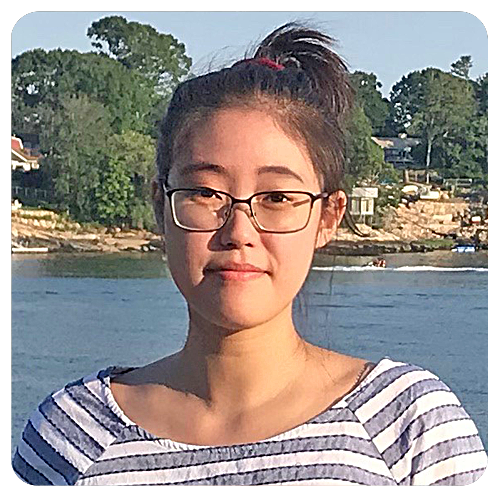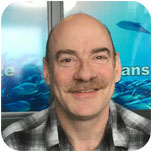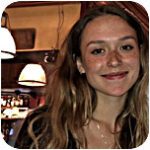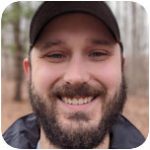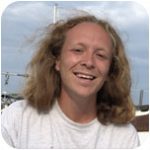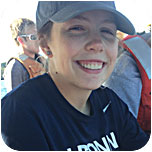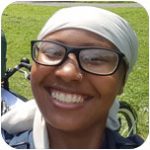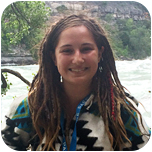Hannes Baumann (PI)
Hannes Baumann started the 'Evolutionary Fish Ecology' Lab in September 2014 to expand ecological and evolutionary frontiers via experimental, field, and modeling work. His lab investigates how coastal marine organisms will cope with the simultaneous changes in their environment caused by global and regional human activity, and how they are already adapted to environmental fluctuations in e.g. temperature, oxygen, or pH.
Local field work includes maintaining deployed sensors, frequent collections with plankton nets and beach seines, in addition to laboratory rearing of fish, physiological measurements, and otolith microstructure analysis - all of which can incorporate the help of interested and ambitious undergraduate students searching for hands-on experience and own projects.
Current grants:
- 2024 – Ward, E., Batta-Lona, P., Baumann, H., Whitney, M. Planktonic diversity and physical characterization of Revolution (Cox Ledge) offshore wind leasing area. ORSTED-CIEROW grant ($800,000 2 years).
- 2024 – Baumann, H., Matassa, C., Batta-Lona, P., Gottschall, K. A first comprehensive evaluation of Black Sea Bass diets in Long Island Sound. Connecticut Sea Grant College Program R/LR-31 ($149,862 2 years)
- 2023 – Baumann, H., Baumann, Z. Expanding the silverside system to quantify how climate gradients determine co- and countergradient adaptation strength in the ocean. NSF-OCE #2313288, 7/15/23 - 7/14/26, $497,000
- 2023 – Baumann, H., Baumann, Z., Wiley, D., Therkildsen, N.O., Murray, C.S. ORCC: Collaborative Research: Mechanisms underpinning the unusual, high CO2 sensitivity of sand lances, key forage fishes on the Northwest Atlantic Shelf. NSF-ORCC #2307813, 8/15/23 - 7/14/2026, $1,050,000
- 2022 – Baumann, H. Towards a fully annotated reference genome of Northern sand lance Ammodytes dubius. UConn College of Liberal Arts and Sciences #2546140 ($14,455).
Past grants
Past grants:
- 2022 – Baumann, H., Pacileo, D., Benway, J., and McBride, R.S. Increasing Black Sea Bass abundance in Long Island Sound: a local or broader regional phenomenon? Connecticut Sea Grant College Program R/LR-30 ($149,173 2 years).
- 2020 – Baumann, H., Savoy, T., Benway, J., and Pacileo, D. A re-emergent spawning population of Atlantic Sturgeon in the Connecticut River? Combined age analyses and telemetry data will provide new insights. Connecticut Sea Grant College Program ($149,690 2 years). Project page
- 2018 – Therkildsen, N. and Baumann, H. Collaborative research: The genomic underpinnings of local adaptation despite gene flow along a coastal environmental cline. NSF-OCE #1756316 ($325,388 3 years) Project page
- 2018 - Wiley, D., Kaufman, L., Baumann, H. and Llopiz, J. Productivity and ecology of sand habitats. Bureau of Ocean Energy Management (BOEM), interagency agreement with DOC/NOAA/OAR ($1,050,000 3 years)
- 2016 - Dam, H., Baumann, H., Finiguerra, M., and Pespeni, M. Collaborative Research: Transgenerational phenotypic and genomic responses of marine copepods to the interactive effects of temperature and CO2. NSF-OCE #1550180 ($609,684 3 years) Project page
- 2016 - Baumann, H. and Nye, J. Collaborative research: Understanding the effects of acidification and hypoxia within and across generations in a coastal marine fish. NSF Project# 1536336 ($829,035 3 years) Project page
- 2016 - Baumann, H., Wiley, D. Kaufman, L., Valentine, P., and Gallager, S. Sensitivity of larval and juvenile sand lance Ammodytes dubius on Stellwagen Bank to predicted ocean warming, acidification, and deoxygenation. Northeast Regional SeaGrant Consortium ($198,393 2 years) Project page
- 2016 - Dam, H., Finiguerra, M., and Baumann, H. Predicting the performance of the copepod Acartia tonsa under future conditions of temperature and CO2. Connecticut Sea Grant College Program ($149,969 2 years).
- 2016 - Baumann, H. and Rader, L. Lifting a treasure: Full digitization of Project Oceanology’s 40+ years of coastal research data in Long Island Sound. Connecticut Sea Grant Project# PD-15-14 ($5,000).
Emma Siegfried MSc (PhD student)
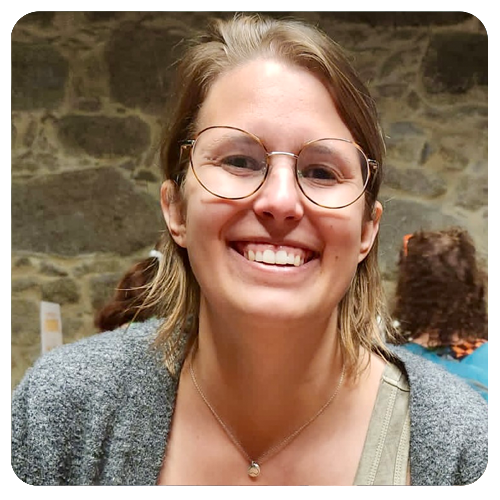
Emma Siegfried joined our lab as a PhD student in fall 2023, after graduating from California State University at Long Beach in summer 2023 with her M.S. Emma's has a strong experimental background and in California has studied effects of ocean acidification on the early life stages of grunion, a famous coastal marine forage fish on the US Pacific coast.
Emma is now trying to parlay her expertise into a new experimental challenge, which is to find out whether other sand lance species are equally CO2 sensitive than the Northern sand lance Ammodytes dubius (NSF-ORCC #2307813). Welcome to the east coast, Emma, and to your new chapter of life and science!
Two recent publications from Emma's M.S. thesis:
- Siegfried, E. and Johnson, D.W. 2023. Experimental ocean acidification and food limitation reveals altered energy budgets and synergistic effects on mortality of larvae of a coastal fish. Frontiers in Marine Science 10 (publ 31 August 2023)
- Siegfried, E. and Johnson, D.W. 2023. Effects of ocean acidification and warming on the specific dynamic action of California Grunion (Leuresthes tenuis) larvae. Journal of Experimental Marine Biology and Ecology 563:151893
[American sand lance, ocean acidification, climate change]
emma.siegfried@uconn.edu
Lucas Jones MSc (PhD student)
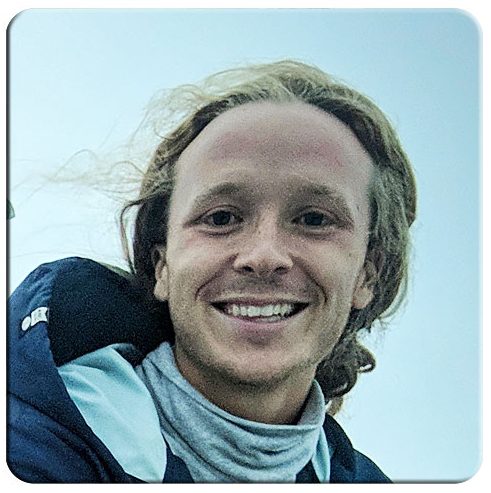
Lucas Jones technically started as a PhD student in our lab in fall 2022, but he has been an invaluable lab member for much longer than that already. It's quite a story.
He first volunteered as an undergraduate student in 2017 and because of his dedication and experimental talent quickly became an indispensable asset to our scientific operations. He then continued to leverage his familiarity with our rearing system to further investigate the climate sensitivity and population characteristics of Northern sand lance (Ammodytes dubius), an important winter-spawning forage fish in the Gulf of Maine. In 2019, after getting his bachelors degree from the University of Connecticut, he became a graduate student and for his Master thesis research he broadened his skill set again and ventured into genomics and bioinformatics. In December 2021, he presented his M.S. thesis titled:
"Using low-coverage, whole genome sequencing to study Northern sand lance (Ammodytes dubius) population connectivity in the Northwest Atlantic" (UConn Library Digital Repository)
The corresponding manuscript has been published in the ICES Journal of Marine Science
- Jones, L.F., Lou, R.N., Murray, C.S., Robert, D., Bourne, C.M., Bouchard, C., Kučka, M., Chan, Y.F., Carlon, D.B., Wiley, D.N., Therkildsen, N.O., and Baumann, H. (2022) Two distinct population clusters of Northern sand lance (Ammodytes dubius) on the Northwest Atlantic shelf revealed by whole genome sequencing. ICES Journal of Marine Science 80:122-132
For his PhD research, Lucas now seeks to take sand lance climate sensitivity and genomics to the next level and learn more about why this enigmatic species is so CO2 sensitive and how its genetic population structure may help it adapt.
[Northern sand lance, population dynamics, connectivity, climate change]
lucas.jones@uconn.edu
Hannah Roby (MS student)
Hannah Roby joined our lab in January 2024 after graduating with a double degree (B.S in Marine Biology and B.S in Marine Fisheries) from Texas A&M University in Galveston in 2023. Hannah has already gathered valuable field experience as a summer intern for CTDEEP, and will now use her broad background in Marine Science to initiate and conduct a large diet study on Black Sea Bass. This northernmost grouper species has greatly risen in abundance in Long Island Sound over the past decade - with still unknown consequences for the food web. Welcome Hannah - and all the best for your graduate research!
[Black Sea Bass, Centropristis striata, Long Island Sound, diet]
hannah.roby@uconn.edu
Vicki You (MS student)
Vicki You joined our lab in June 2024 after graduating with her Bachelor from the University of Connecticut and a Major in Marine Sciences. Vicki has already developed valuable skills in molecular methods, and thanks to funding from Orsted will now have the opportunity to pursue her Masters degree by studying the occurrence and overlap of the two sand lance species on offshore wind lease areas. Welcome Vicki - and all the best for your graduate research!
[Sand lance, offshore wind areas, species overlap, drift, diet]
vicki.you@uconn.edu
David Riser (MS student)
David Riser started his Masters in September 2020 after graduating with his Bachelor from the University of Connecticut and a Major in Marine Sciences. David already looks back on a successful career in the US Coast Guard, but now ventures to develop academic chops and expertise. In close collaboration with CT DEEP, he is analyzing time series of Black Sea Bass catches in Long Island Sound and has already become an ageing expert of Black Sea Bass using otoliths, yielding important insights how these fish grow in Long Island Sound.
[Black Sea Bass Centropristis striata, otoliths, age, growth, migration]
david.j.riser@uconn.edu
Undergraduate volunteers, summer students
Volunteering and working as an undergraduate in our lab is a great way to explore and develop your fascination with Fish Biology, Ecology, and Evolution, while gathering practical and analytical skills. And if it's not 'your cup of tea' - no hard feelings.
